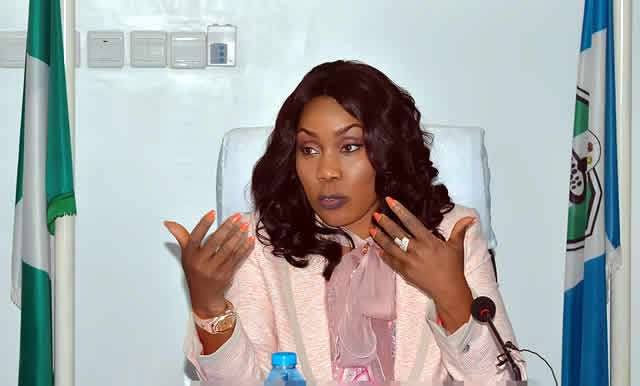NAPTIP DG, Okah-Donli Rejects Castration As Punishment For Rape, Gives Reason

Director-General of the National Agency for Prohibition of Trafficking in Persons, (NAPTIP), Dame Julie Okah-Donli, has rejected castration as punishment for rapists, saying the ideal penalty should be considered on a case by case basis.
She disclosed this during a webinar conference on gender-based violence organized by Women Empowerment and Legal Aid (WELA), a non-governmental organization, (NGO), in Lagos state on Thursday, August 20.
Donli who insisted castration is not an ideal penalty for rape offenders added that perpetrators could be left with no option but to kill their victims after the act.
Speaking, the convener of the programme and human rights activist, Funmi Falana who is also the founder of WELA, expressed her deep concern on the rising wave of sexual violence in Nigeria.
She added that the upsurge was not due to the unavailability of laws but the institutionalized myths about rape eating deep into various parts of the government at all levels.
Also speaking, the Lagos State Commissioner for Women Affairs, Bolaji Dada and the Ekiti State Attorney General and Commissioner for Justice, Olawale Fapohunda jointly noted finding a way forward from the rising wave of sexual violence in Nigeria is a must for all stakeholders.
They added that stigmatization of rape survivors should be addressed and the role of forensic evidence in the fight against rape should not be ignored.
Although emphasizing the need for law reforms, policy change, and the creation of a sex offenders’ register, Fapohunda opined that until these efforts are institutionalized at the federal level, the fight against gender-based violence would remain a struggle.
On her part, Founder, Stand to End Rape, (STER) Oluwaseun Ayodeji, highlighted the religious undertone as well as the blame-shift culture from the perpetrators to the victim prevalent in the society.
She noted that survivors leverage on these reasons to be silent and excuse the perpetrators afterward.
Ayodeji urged the government at all levels and the society at large to approach rape cases as murder cases with zero tolerance for perpetrators.
Addressing the role of forensic evidence in rape crime investigation, Coordinator, Domestic Sexual and Violence Response Team (DSVRT), Mrs Titilayo Vivour Adeniyi, maintained that the need to leverage on the investigation cannot be overemphasized.
She noted that more than providing women with information on where to go after a rape, awareness should also cover ‘what to do’, which includes not taking a bath before approaching the hospital.
Adeniyi encouraged the need for compensation of rape survivors to avoid out of court settlements by offenders.
